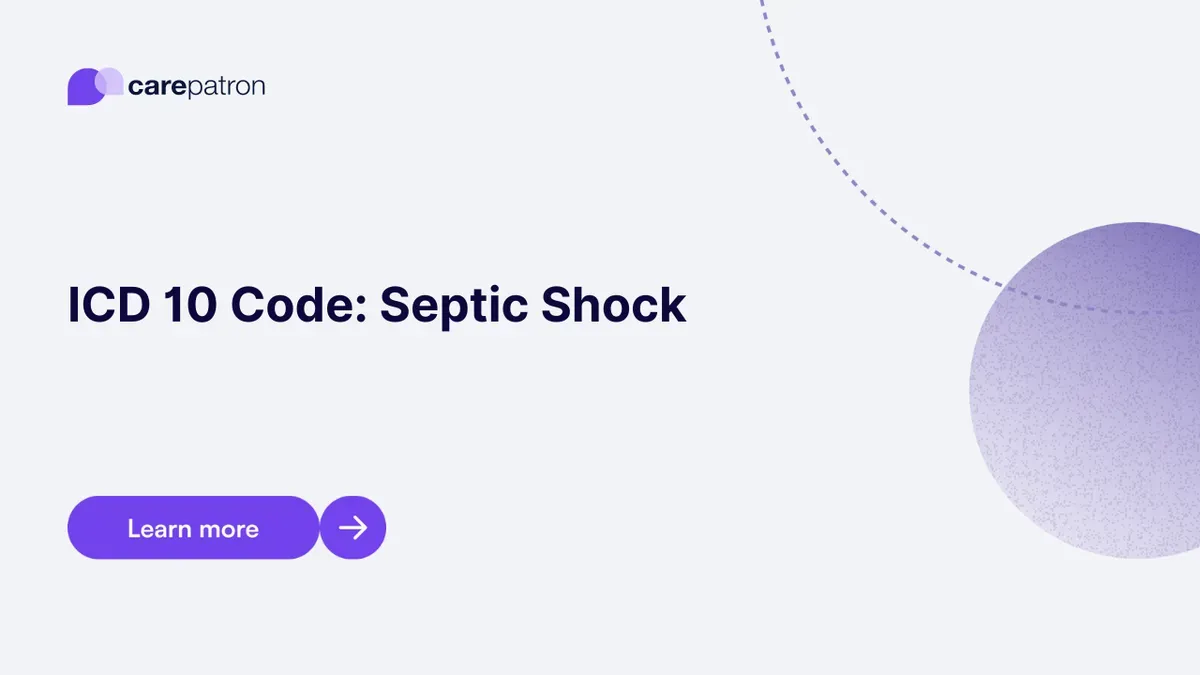
Septic Shock ICD-10-CM Codes
Explore the latest septic shock ICD codes you can use for billing and coding. Get valuable clinical information for your practice.
Use Code
Commonly asked questions
There are no other ICD codes with septic shock in their names. Again, the principal diagnosis should be sepsis.
The person will likely have the following symptoms: their heart will start palpitating, they will start to look pale, their blood pressure will drop fast, and they will feel lightheaded.
Healthcare professionals will resort to administering antibiotics, fluids, and medication that increases blood flow in organs. Depending on other findings, professionals may need to use ventilators for those who can’t breathe well independently. They might use insulin if the shock increases the person’s glucose levels. They might even resort to surgery if tissues have died and if any abscesses need to be removed.
EHR and practice management software
Get started for free
*No credit card required
Free
$0/usd
Unlimited clients
Telehealth
1GB of storage
Client portal text
Automated billing and online payments
